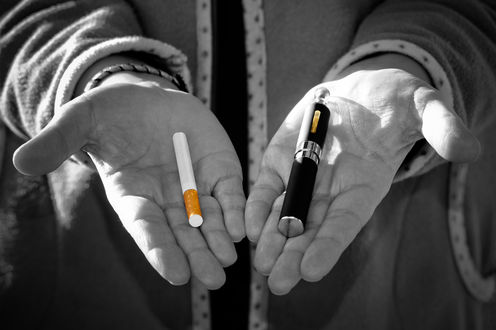At a time when distrust of journalism and science has increased due to increased efforts at politicization of, well, everything, it is important that the public be shown the difference between clinically relevant work and papers that claim relevance while being nothing of the kind. Mice are not little people. No drug can get into the approval cycle at the US Food and Drug Administration if it only studied them or cells in dishes.
Yet other parts of the U.S. government continue to promote doubt about science while encouraging Americans to accept it. The money behind the new study is the National Institute of Environmental Health Sciences which, like the National Center for Complementary and Integrative Health, is funded by your tax dollars and is part of the National Institutes of Health, but do nothing the American public would recognize as science. When the head of your group gives speeches for organic food trade groups and complains about biology, toxicology, and chemistry, as NIEHS did for eight years, it is impossible to believe that does not impact the employees they hire. NIEHS exists to correlate chemicals to harm. They don't need science to do that, they only need surveys or diaries and to match claims about foods or products to people who got diseases. Then they publish results in their own in-house journal and call that peer-review.
If Exxon created a Clear Air Journal would journalists trust the results? That is the issue with trusting NIEHS. If they cannot continue to find new ways to statistically suggest the modern world is causing disease, they are unemployed.

In the NIEHS-funded experiments, HL-1 cells in mice and then human cells they created using iPS were inundated with vaping chemicals a human body could not get in 40,000 years. Mice were also forced to inhale the human equivalent of 200 e-cigarettes per day for the human equivalent of 10 years. No creature could endure that without suffering heart issues, and no human would spend 16 hours per day vaping non-stop. It is not relevant to human exposure in any way, and exposure is what matters in 100 percent of cases.
That said, there is actually nothing wrong with the study. Didn't I just criticize it? I criticized what they did with the results. Exploratory studies are important to science. They may lead to 'this is interesting' results that merit follow-up, and if another study using more realistic conditions also finds heart issues from chemicals in vaping flavors, something not similar to heart changes from a cup of coffee or a Red Bull, then it would absolutely merit scientists looking into it. This instead seeks to scare the public at a time when the public needs to be less jaded about government-funding research.
The science fact is that smoking kills. Eating enough Life-Savers, like 200 a day, as a substitute for the behavioral mechanism in smoking while quitting can damage your tongue, while eating enough calories will make you fat and mean greater risk of heart disease - but it would be strange to read either as an argument not to stop smoking. Studies show that people who vape but don't smoke are much healthier than smokers and no less healthy than non-smokers. The only vapers who are at meaningful increased risk are those who smoke the same amount but also use e-cigarettes, because the common denominator is still cigarettes.




Comments